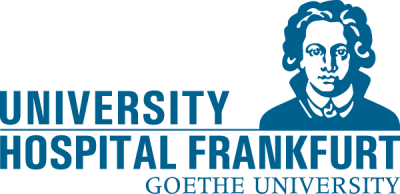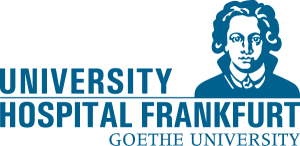
FOR5643
HERZBLUT
Topic
FOR5643
HERZBLUT
Topic

FOR5643:
Clonal Hematopoiesis:
Clonal Hematopoiesis:
Pathomechanisms and consequences in the heart and blood
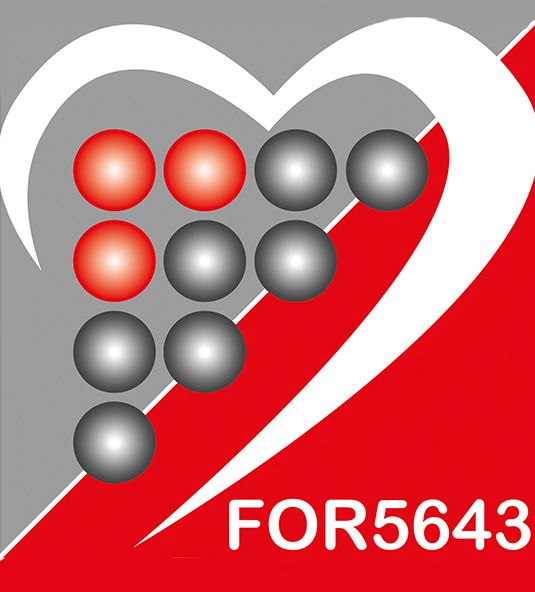
Synapsis
The acquisition of somatic mutations in hematopoietic stem/progenitor cells in myeloid-leukemia-related genes coincides with the aging process and leads to the outgrowth of mutated blood cell clones (clonal hematopoiesis, CH).
CH is highly prevalent in individuals over the age of 60. Intensive research by us and others over the last 6 years have revealed that CH has major pathophysiological implications and therefore has become a hot topic in medical research.
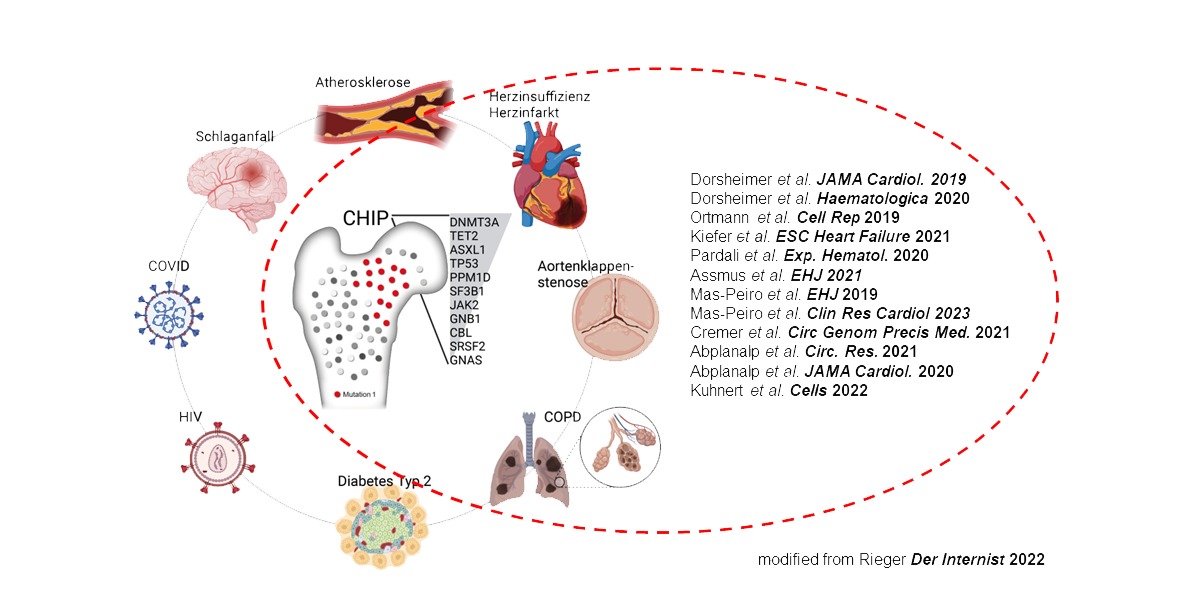
While CH is associated with enhanced risk to progress into hematologic malignancies, CH has emerged as an unexpected, independent risk factor and driver of atherosclerosis, coronary heart disease, heart failure and aortic valve stenosis. The topic of utmost medical interest requires a transdisciplinary research approach crossing the boarders of hematology and cardiovascular medicine. The DFG-funded Research Unit FOR5643 (HERZBLUT) comprises a strong team of world-leading experts in these fields and emerging junior investigators to pair strong life science and medical research experience with sophisticated technologies and advanced research approaches.
Basic and clinician scientists closely interact to transfer the knowledge from molecular and cell-based models to preclinical models and clinical application, and to enable the reverse translation of primary material from well characterized patient cohorts back to the lab. The restriction on certain genes (DNMT3A, TET2, PPM1D, SRSF2, SF3B1), mutations and CH associated diseases (heart failure, valve stenosis, pulmonary hypertension, acute myeloid leukemia) will generate high synergisms in sharing common technologies, models, and research tools within HERZBLUT, and help to build a broad and unifying picture of overarching disease mechanisms.
We propose here a comprehensive and highly synergistic work program to follow two major aims: a) to target the pathomechanisms of CH for therapeutic applications and b) to interrogate CH development and progression in the context of CH associated diseases. With HERZBLUT, we pursue following objectives:
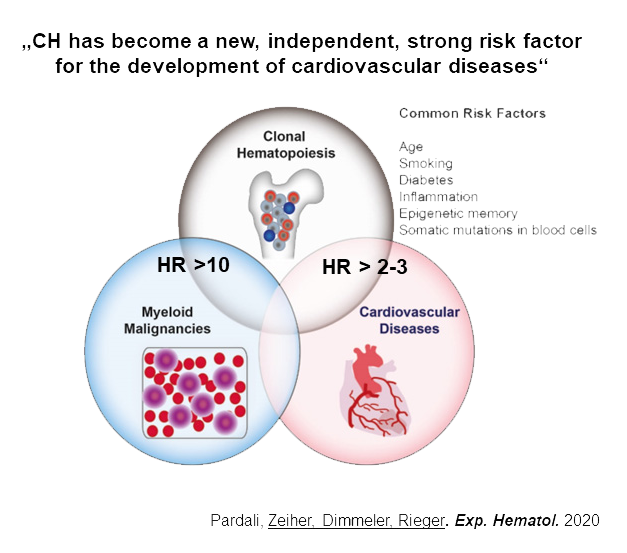
(1) To promote precision biology in the field of CH and its associated diseases of the heart and the blood by studying the molecular and cellular pathomechanisms.
(2) To exploit mechanistic findings for novel individualized therapies, promoting precision medicine.
(3) To promote junior scientists and clinicians for basic and translational research.
(4) To recruit and promote outstanding female scientists and clinicians.
(5) To facilitate the development of diagnostic and therapeutic approaches by patenting and exploiting our newly gained knowledge.
(6) To install a broad array of measures addressing public outreach for the scientific and medical community and for the general public.
The exquisite composition of HERZBLUT, paired with an excellent and stringent research plan, will ensure our efforts in developing critical knowledge and in translating tools for clinical management of CH and CH-associated diseases in the heart and blood.
Specific Aims of HERZBLUT
To investigate the molecular and functional pathomechanisms in mature immune cells with specific somatic mutations that cause the progression in CVD and hematologic malignancies
To specify and characterize relevant CH mutations that cause hematologic and cardiovascular diseases for advanced risk assessment
To identify intervention strategies to break the vicious circle of CH and CH-associated diseases and drugs/therapeutics to specifically target mutated blood cells directly
To reveal mechanisms of clonal dominance by delineating the interplay of intrinsic and extrinsic factors caused by CH-associated diseases (ischemia, heart failure, valve stenosis, pulmonary hypertension)


























